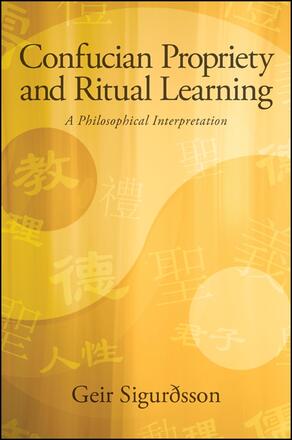
Confucian Propriety and Ritual Learning
A Philosophical Interpretation
Alternative formats available from:
A reconsideration of the Confucian concept li (ritual or ritual propriety), one that references Western philosophers as well as the Chinese context.
Description
Honorable Mention, 2018 Outstanding Book Award presented by the Society of Professors of Education
Geir Sigurðsson offers a reconsideration of li, often translated as "ritual" or "ritual propriety," one of the most controversial concepts in Confucian philosophy. Strong associations with the Zhou period during which Confucius lived have put this concept at odds with modernity's emphasis on progressive rationality and liberation from the yoke of tradition. Sigurðsson notes how the Confucian perspective on learning provides a more balanced understanding of li. He goes on to discuss the limitations of the critique of tradition and of rationality's claim to authority, referencing several Western sources, notably Hans-Georg Gadamer, John Dewey, and Pierre Bourdieu. An exposition of the ancient Chinese worldview of time and continuous change further points to the inevitability of li's adaptable and flexible nature. Sigurðsson argues that Confucius and his immediate followers did not endorse a program of returning to the Zhou tradition, but rather of reviving the spirit of Zhou culture, involving active and personalized participation in tradition's sustention and evolution.
Geir Sigurðsson is Associate Professor of Chinese Studies at the University of Iceland.
Reviews
"Confucian Propriety and Ritual Learning is a well-argued and meticulously researched study of classical Confucian notions of ritual, education, and moral self-cultivation … an important contribution that will hopefully introduce many new readers to the works of classical Confucian philosophy and encourage future comparative projects. " — Dao
". ..I highly recommend this book to those who already have a deep understanding of early Chinese intellectual history and who do not shy away from new methodological approaches to and perspectives on early Confucianism. " — Daniel Sungbin Sou, Religious Studies Review